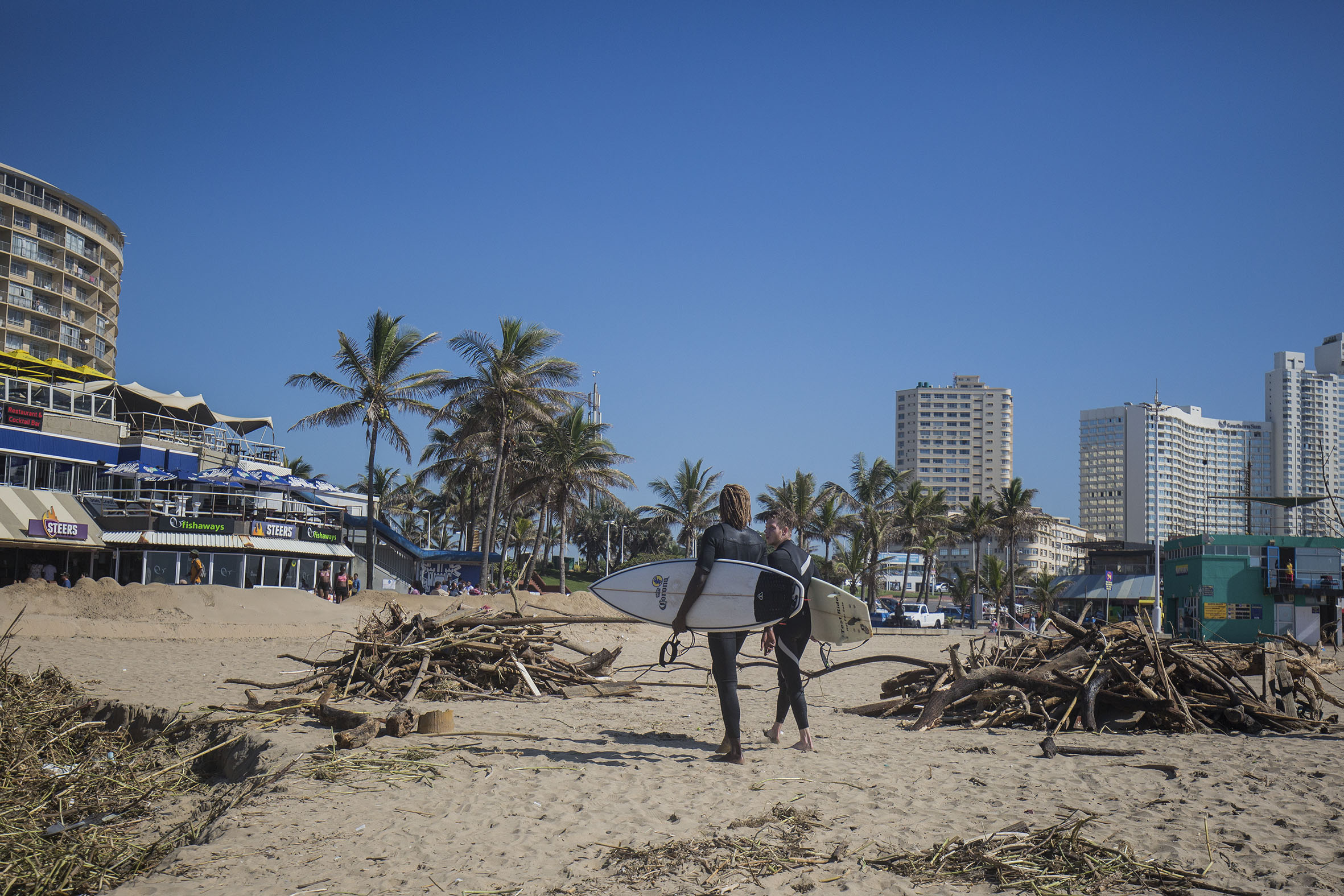‘Lord, have you abandoned KwaZulu-Natal?’
Reeling residents now face water shortages after the floods ripped up pipes and washed away roads and bridges so water tankers can’t reach them.
Author:
20 April 2022

When the sun came out on Tuesday 19 April, millions of devastated KwaZulu-Natal residents breathed a collective, if tentative, sigh of relief. The respite from the relentless rain that had wreaked havoc across the province gave people pause to properly survey the damage and reflect on the massive human tragedy.
At least 448 people are dead and thousands are homeless. It will take years to recover from the ruin. Entire settlements have been washed away, roads and bridges destroyed and factories swamped.
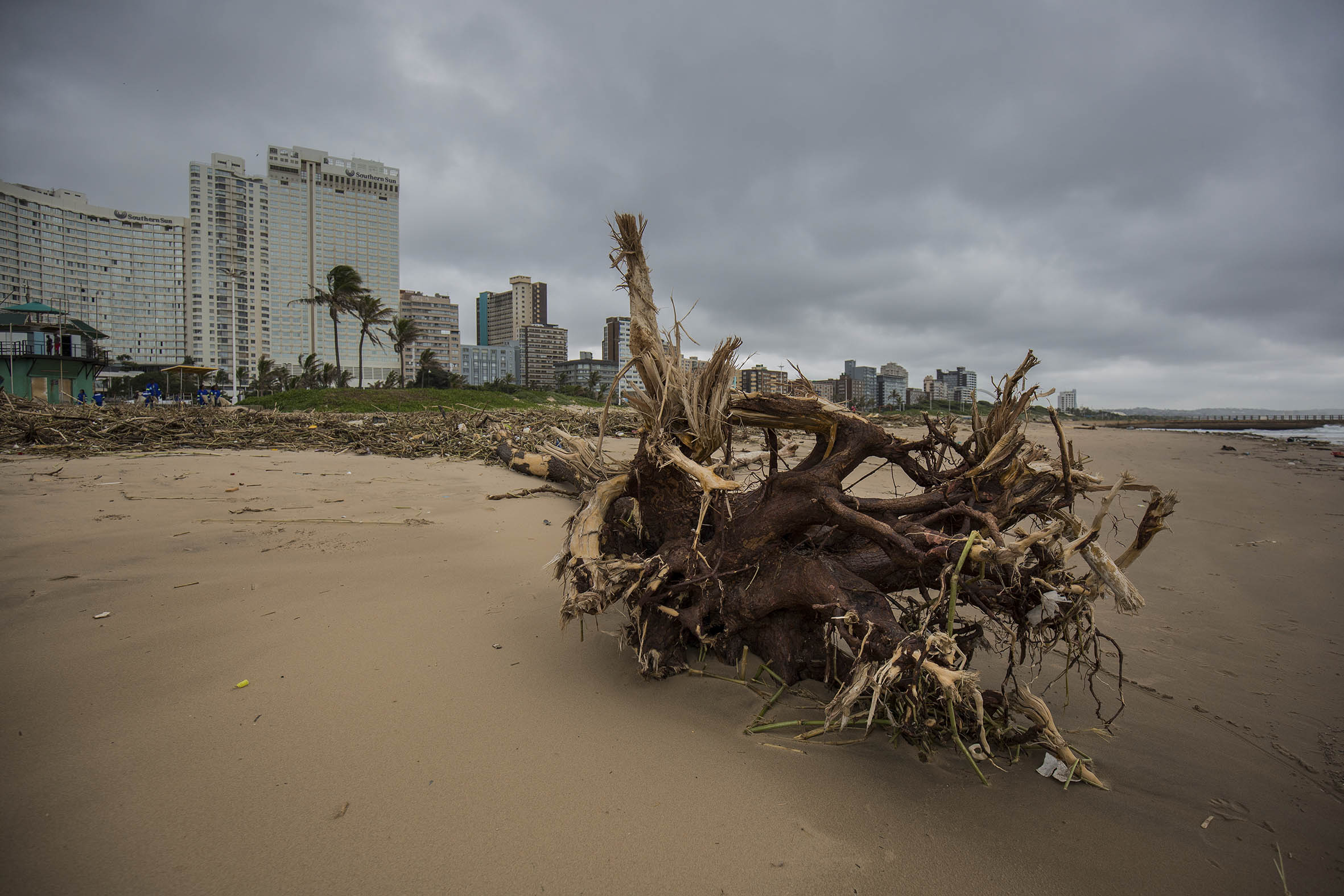
Community development worker Malusi Mazibuko described the situation as “dire”.
“People have literally lost everything,” he said. “They are still searching through debris for bodies. They are traumatised. There is a little girl there who has stopped talking. When she spoke once, it was to ask her mother when the ‘big water’ is coming back.
“Some people I have dealt with describe water as a silent killer. Some people drowned in their beds. Others were electrocuted. The rain just kept on coming.”
No drinkable water
Mazibuko works with a non-governmental organisation called Ranyaka, which is helping coordinate the work of charities in the north and south of the eThekwini municipality.
He said the lack of potable water had already prompted protests. “This is the big issue now. People are angry, it is like somehow salt is being rubbed into the wound. The situation would really feel hopeless if it were not for the amazing effort of people coming together, individuals and companies volunteering to help. It is a very emotional time.”
Emergency services and aid workers have worked around the clock to rescue and help people.
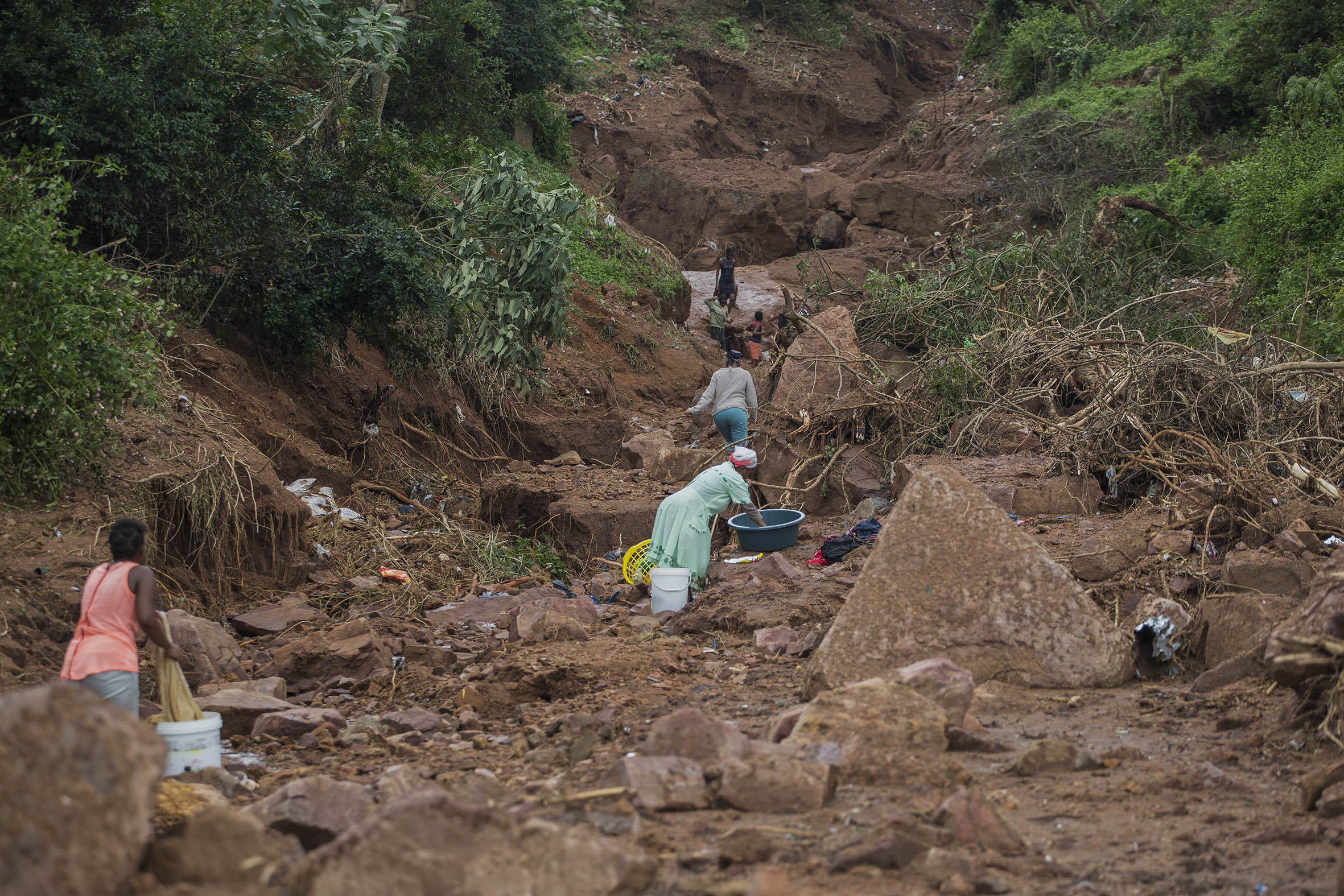
A veteran police officer, one in an 80-strong search-and-rescue team operating from Virginia Airport in northeast Durban, described the heartache. “I’m used to this world, but you are never fully prepared for this. We have responded to more than 35 calls today, getting to landslides, sending divers in to search for bodies and winching people off roofs. But you can’t get to everything. It is just impossible.
“The hardest part is saying to people that we can’t carry on looking for their loved ones. We have to respond to other calls and they are angry and grieving.”
More faith in charities
KwaZulu-Natal premier Sihle Zikalala visited rescue workers this week to thank them. “No words can convey our appreciation for your courage … I know that as I speak to you, some of your teams are out there and five more bodies were recovered today.”
Among the most pressing issues facing authorities – beyond rescuing people who are still stranded and recovering bodies – are ripped up water pipes and the knocked-out electricity supply to thousands. Some residents have been without power for a week while others have had to contend with intermittent piped water supply or tanker deliveries.
A government worker who lives in a suburb in Durban said she was without water and electricity for five days last week. “Yesterday I had a shower for the first time in a week. It has been devastating. Two of my neighbours died, their house was just flattened. They were buried in the mud. Our road is closed because half of it has caved away and there are big sinkholes everywhere.”
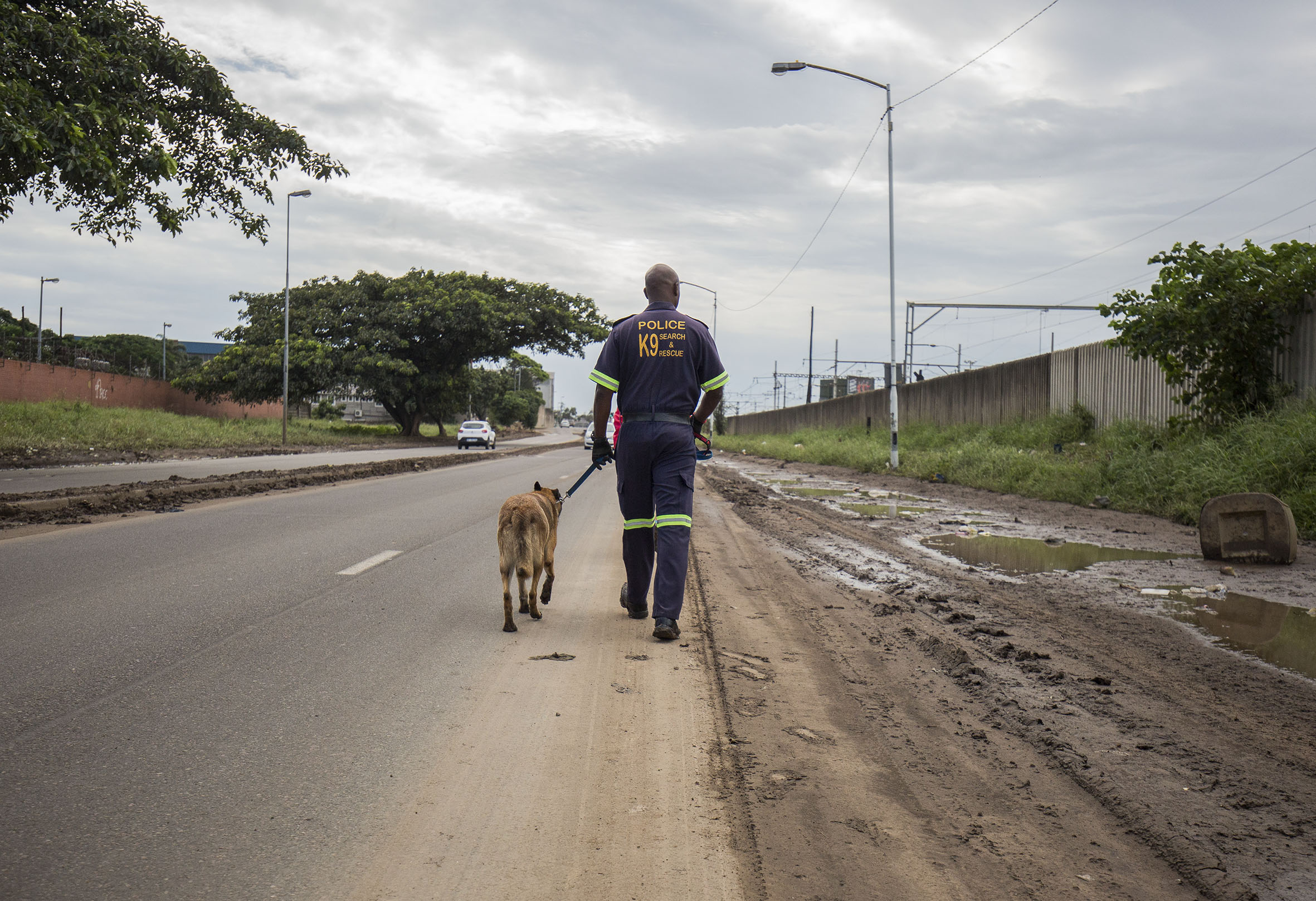
President Cyril Ramaphosa has declared the province a disaster area and allocated R1 billion for relief measures.
Zikalala, accused of receiving priority water supply to his upmarket La Mercy home, which he denied, has promised that aid relief will not be squandered. While this prompted much derision, Zikalala said: “Having learnt the lessons of Covid-19, no amount of corruption, maladministration and fraud will be tolerated.” He said most of a R10 million bank donation for humanitarian aid would be routed through disaster relief group Gift of the Givers.
Director Imtiaz Sooliman said the immediate need was for sanitary packs, food parcels, blankets, school bags and stationery. “These needs will be met. But long-term, people will need materials to rebuild their houses and fix schools.”
Sooliman said the state’s capacity to respond is limited and people have more faith in local charities to administer aid. “This is our country, it doesn’t belong to the government, which is why we must work to help one another now. If you have the spirit and the heart to help, you must just do it.”
Public trust
Tanya Altshuler and a small team constitute the Durban chapter of The Angel Network. She and fellow volunteers sourced 10 000 litres of bottled water from Johannesburg for distribution around KwaZulu-Natal.
Altshuler says the public trusts a relatively small but vibrant group of non-governmental agencies, charities and churches in the province to deliver aid to the needy.
“The community is rallying phenomenally. Drinking water is the most pressing need now. I heard a report of two children who died of diarrhoea because of no access to safe drinking water. There are children walking around in wet clothes. We have put out an appeal for clothes for children aged three to 10 years. Some people are wading across a river to get a bucket of breyani. There are areas that are really badly hit.”
Altshuler said charities were in touch with the police search-and-rescue unit, trying to respond to their calls for specific items that could be airlifted to remote and stranded communities.
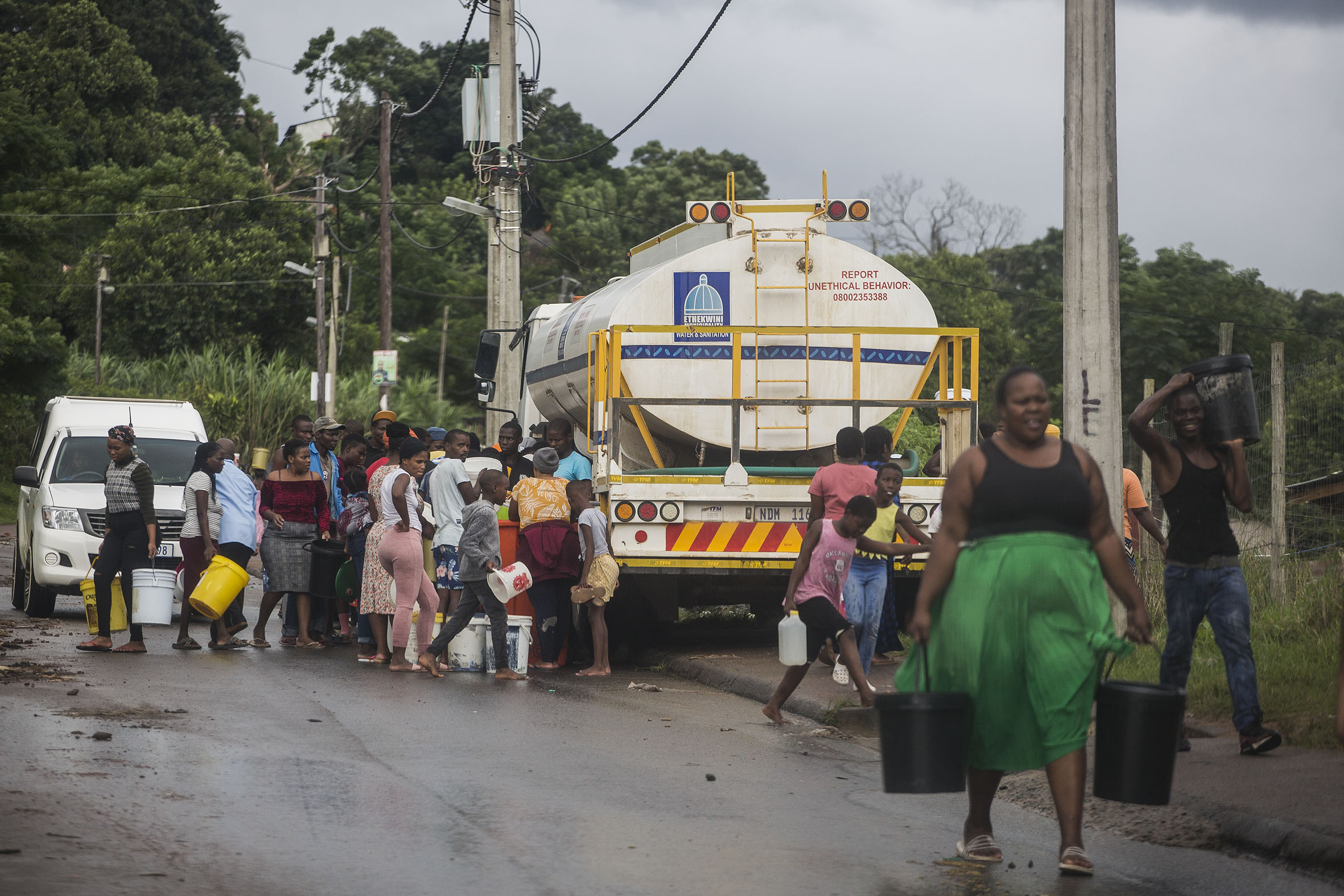
Sonya Olivier from Ranyaka is working alongside charities such as the Gugu Dlamini Foundation to coordinate relief efforts in Umlazi, Kwamashu, Inanda and Ntuzuma. In Umlazi, Andile Mafa from Ranyaka is helping destitute families who are being housed temporarily in two community halls, and 150 children with food parcels and the supplies they need to get back to school.
In KwaMashu, Mazibuko is helping 467 families at 11 community halls and a site where 200 people were stranded. “They were living in the rubble of their destroyed homes,” Olivier said. “We have been able to get a tent, water, gas and food for them. The need is immense. There will be a massive demand for trauma counselling.” She added that KwaZulu-Natal communities, already vulnerable in an economy battered by Covid-19 lockdowns and last year’s July riots, will be in need of help for a “long while”.
Zikalala said “billions” would be required to rebuild the province. Preliminary estimates for road and infrastructure damage alone amount to R5.6 billion. The floods have disrupted at least 58 healthcare facilities. More than 550 schools have been affected, 98 of which will need mobile classrooms. Zikalala said the livestock losses and impact on farms are yet to be quantified. More than 8 300 houses are damaged and 3 937 destroyed.
Economic cost
The back-of-port area, considered the economic heart of logistics-driven Durban, resembled a postapocalyptic movie on the weekend of 16 and 17 April. At the height of the floods, stacks of shipping containers washed down the N2 as the highway transformed into a river. Production at many factories, including car manufacturer Toyota, which employs upwards of 7 000 people, was halted temporarily when areas were engulfed by floodwater.
The Durban Chamber of Commerce and Industry has urged the government to fix water supplies urgently. “Failure to restore water efficiently has the potential to lead to an economic collapse,” it said this week. “It is disappointing to note that part of the damage and disruption to water supply is the government’s inability to act in a proactive manner.”
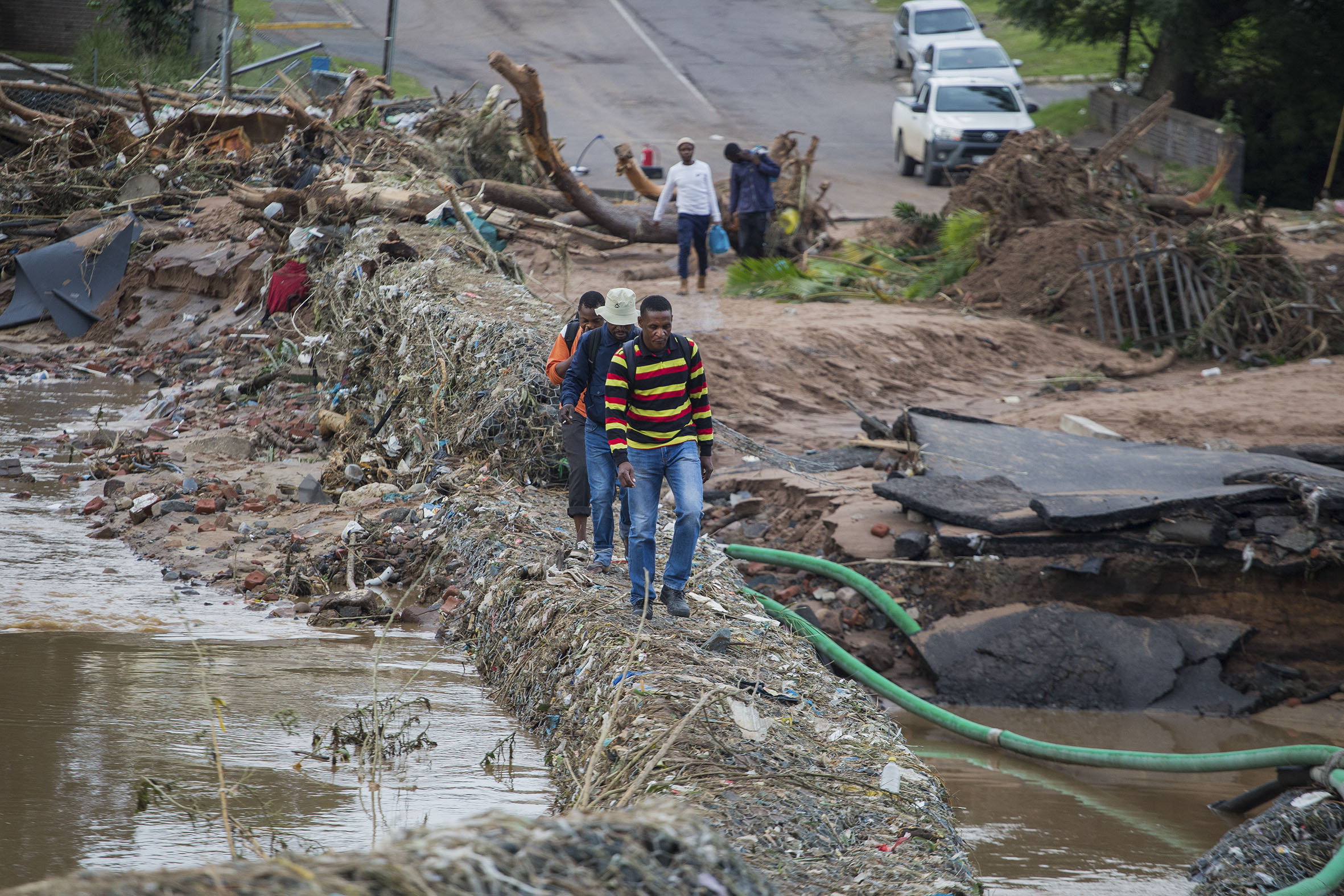
The chamber is conducting a detailed economic impact assessment, but said it estimates that the floods have cost the city more than R700 million. This excludes the cost of replacing damaged infrastructure. It said the port, manufacturing, tourism and logistics sectors are most affected.
Cobus Oelofse from the iLembe Chamber of Commerce said: “If I were a church minister, the sermon on Sunday would have been along the lines of Lord, have you abandoned KwaZulu-Natal?”
He said some communities are stranded because roads and bridges have been destroyed. “The impact is significant. People can’t get to work and tankers can’t reach them to deliver water. At the weekend, some motorcyclists drove along the beach taking water in backpacks to people who have been completely cut off by the damage.”
